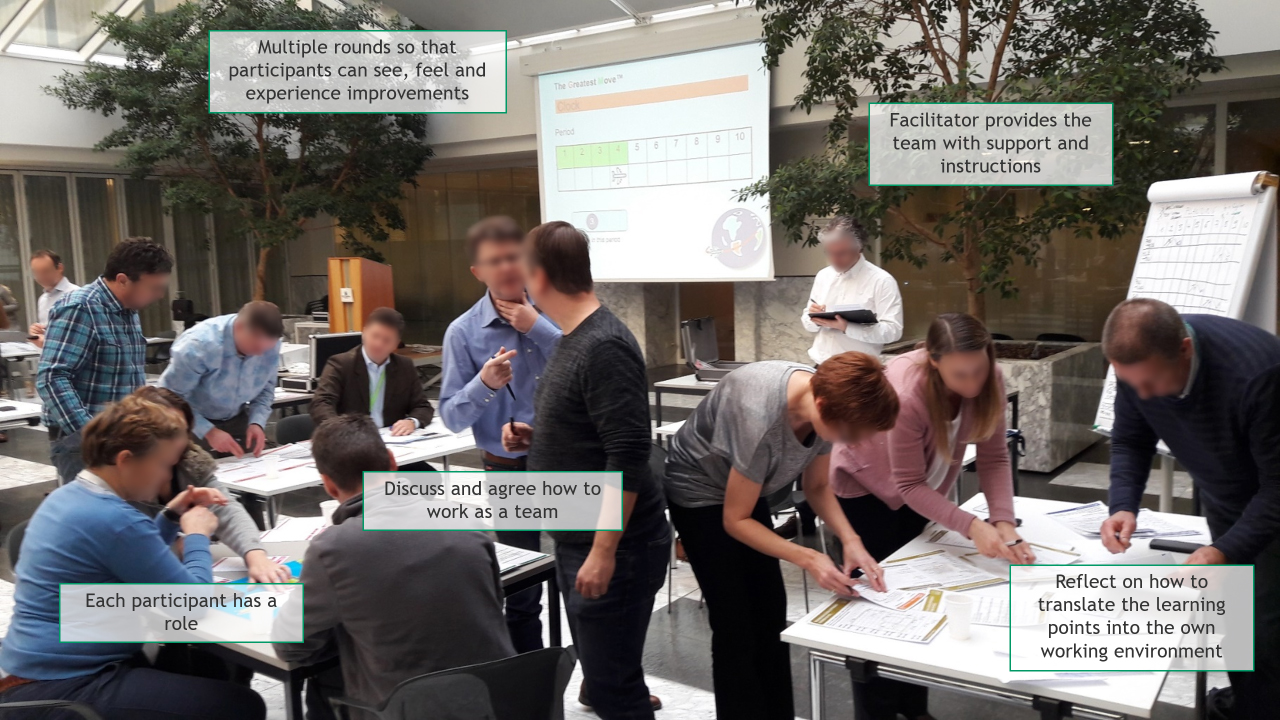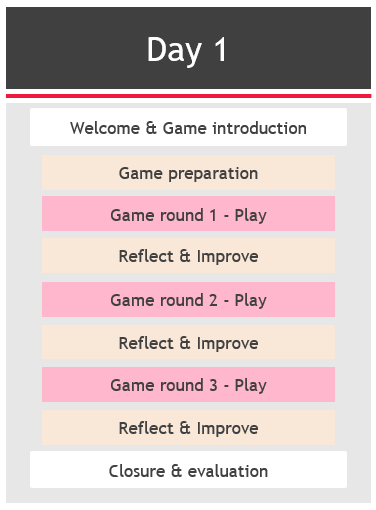The Lean Game
Do you want to master Lean principles? Are you eager to enhance or test your skills in process improvement?
Do you thrive on navigating the storm of customer complaints and dwindling sales, while improving quality, speed, and profitability in a high-stakes office supply race against time? Do you believe you can turn the tide and exceed expectations? These are all compelling reasons to dive into the Lean in the Logistics Challenge!
Training type: In Company
Timing: Half day
Game dynamics:
Your company sells Office Supplies online.
The process from customer order to correct delivery is clearly defined and documented.
Each participant is given a role in this process and can execute, monitor and improve it using Lean concepts.
Unfortunately, customer complaints about the quality of deliveries are piling up, and some orders are not delivered at all! The sky is darkening for office supply, and sales are melting like snow in the sun…
You will have 3 rounds to detect improvements, devise solutions and convert them into implemented improvements.
To this end, you will monitor 3 KPIs : Quality, Speed, Profit
To achieve this, you rely on the different types concepts from Lean thinking, like value and flow. Your team must succeed in creating a super-performing environment to meet and perhaps even exceed management expectations!

This Business Game will enable you to
What are the advantages of a business game?
A multipurpose pedagogical activity
Typical program

